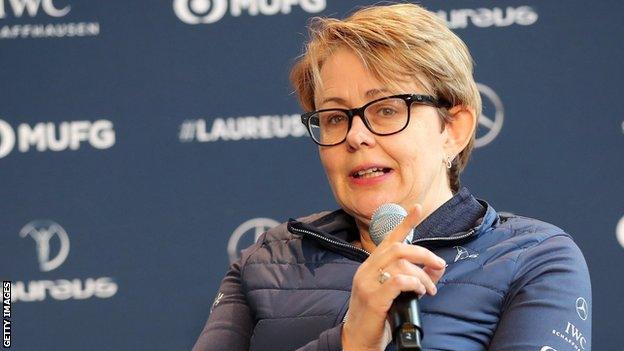Covid: 'Grave concern' over future of swimming pools
- Published
- comments
Elena Morgan, part of Wales' elite development squad, said the situation was "really sad"
There are "grave concerns" about the future of public swimming pools across Wales, according to the sport's governing body.
Swim Wales has warned up to 10% - or 30 pools - may never open again, with rural areas worst hit.
Its research suggests many of Wales' 307 pools have struggled financially while shut during most of the pandemic.
The Welsh government said it would spend £7m this year to help provide more modern and accessible facilities.
Alongside gyms and community centres, pools in Wales reopened on 3 May, but the bills have mounted after they were forced to stay closed for most of the last year.
"It's an astronomical cost running into the hundreds of thousands a year," said Angharad Collins, who heads up leisure services across Torfaen.
Current Covid-19 restrictions mean 30 people can use an indoor swimming pool at one time, but Ms Collins said this made it difficult to cover costs.
But the chief executive of Torfaen Leisure Trusts - which is responsible for five sites across the county, including three pools - said they were vital for helping residents to stay fit and well.
"I had one lady come to us and say she had completely seized up through the pandemic and actually the pool was her oil," she said.
Ms Collins, who is also chairwoman of the Welsh Sports Association's Facilities Committee, warned the biggest challenge would be in four months' time with the end of financial support from both the UK and Welsh governments.
"I think it's feasible but we're going to need the public support. Every pool in Wales will need the public support to ensure they remain open," she added.
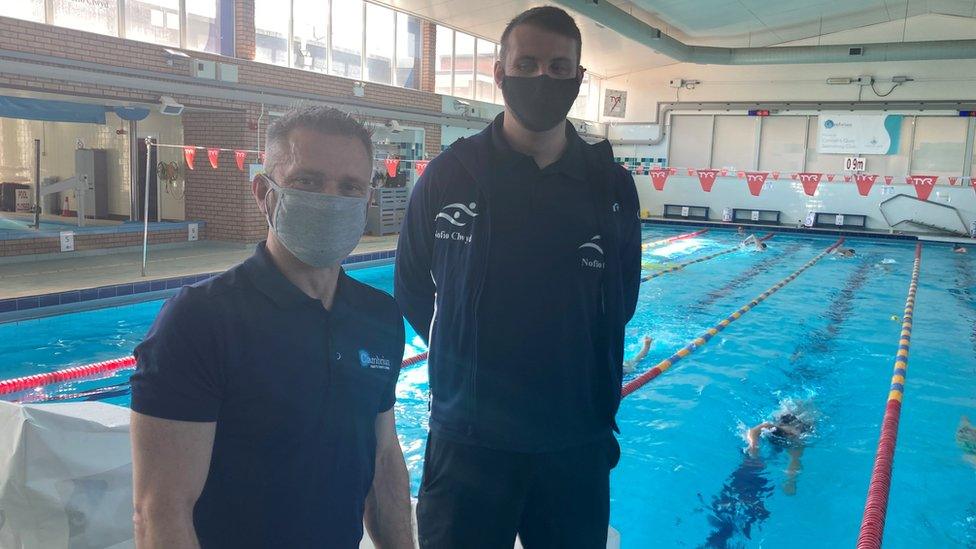
Simon Morgan (left) said Covid restrictions would drastically cut the number of swimming lessons possible at Cambrian Aquatics Centre
The cost is a concern shared by Simon Morgan, who took over the running of Cambrian Aquatics Centre in Connah's Quay, Flintshire, five years ago with other parents from a swimming group.
"It's half a million quid a year - it's really difficult when you have no income," he said.
Mr Morgan said support from the Welsh government and Sport Wales had been "amazing", but his priority was getting people back in the water.
"We had 1,200 in swimming lessons a week, now we're down to about 600... that really affects our ability to generate our own revenue," he added.
Mr Morgan said the pool was built in 1962 to stop people drowning in the nearby River Dee and had been a mainstay in the town ever since.
But he said the coronavirus pandemic and the current restrictions made it difficult to have younger children in the pool as, with parents observing, the numbers allowed to swim were cut further.
His daughter Elena, 18, who learned to swim there as a child, said the situation was "really sad".
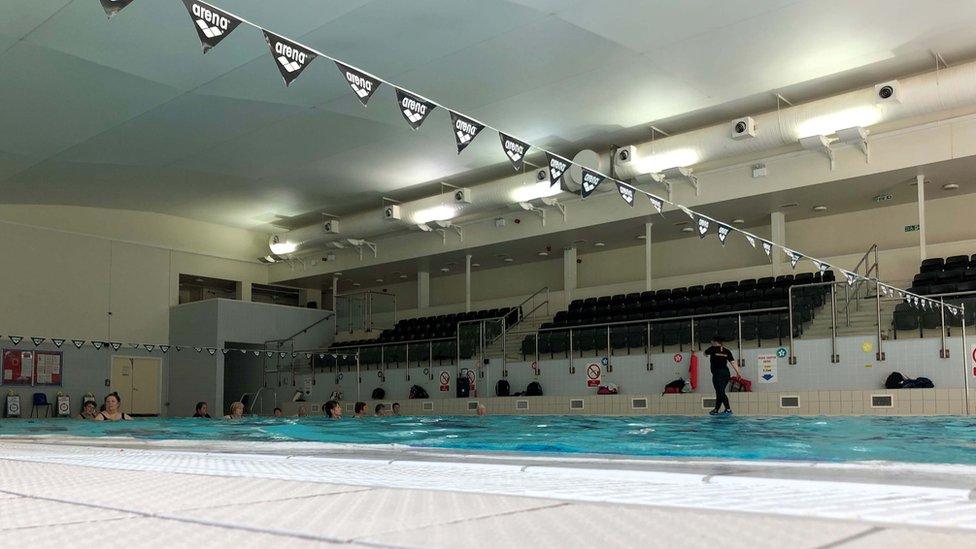
Pontypool Active Living Centre has one of three public swimming pools in Torfaen
She is part of the national elite development squad and said she would not have raced for Wales without her local pool.
"Being a swimmer myself, I know how much I enjoy it and how much other people can enjoy it and it is disappointing how pools are struggling... it's just sad," she said.
A report by Swim Wales found one in five pools had been completely closed for a year, with 80% "inactive" for 43 weeks out of 52.
Chief executive Fergus Feeney said he was most concerned about rural areas where facilities might already be scarce, with fewer customers.
"It's very hard to make ends meet with rural footfall and, if those facilities go from those communities, they'll be even worse off," he added.
He has called for a "nationwide campaign" to get people to use their local pools instead of losing them.
The age of pools is also a concern for the organisation, with more than half being at least 20 years old and having no investment since they were built.
A Welsh government spokesman said physical activity would continue to play an important role in helping people to deal with the mental and physical effects of the past 14 months.
"That is why we have invested over £40m to support sport and physical activity over the course of the pandemic and are investing an additional £7m this year to provide more modern and accessible facilities," he said.
"We hope that more people will be able to access these facilities as the public health conditions improve and restrictions are eased."
- Published13 May 2021
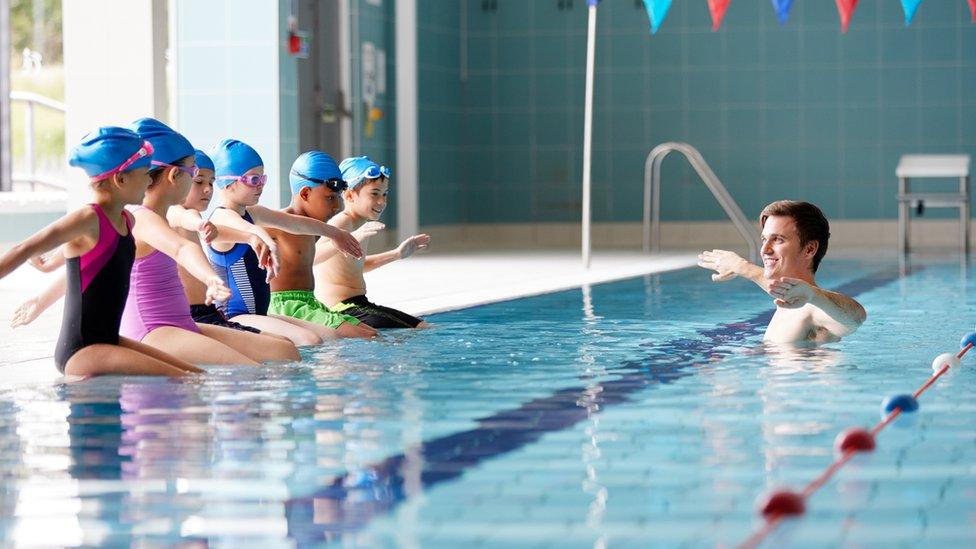
- Published3 May 2021
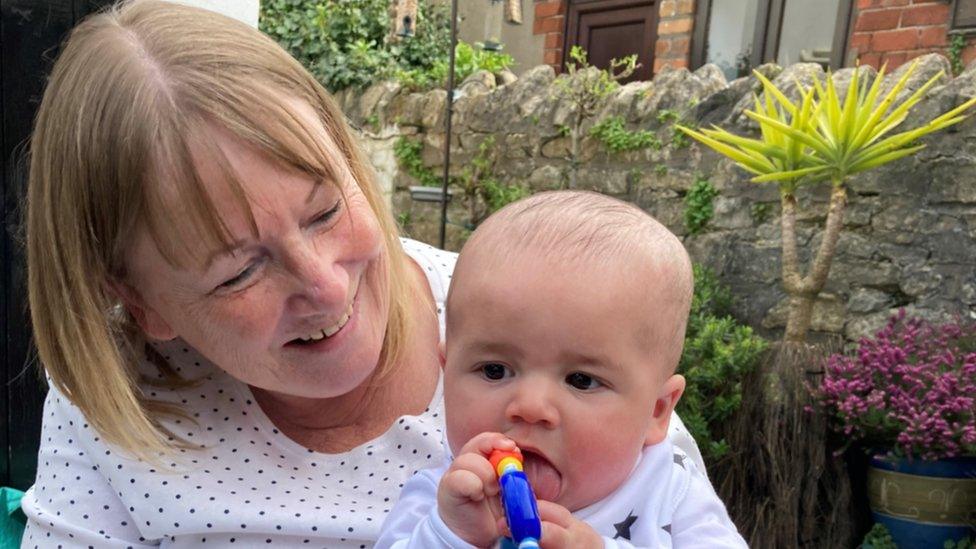
- Published21 August 2020
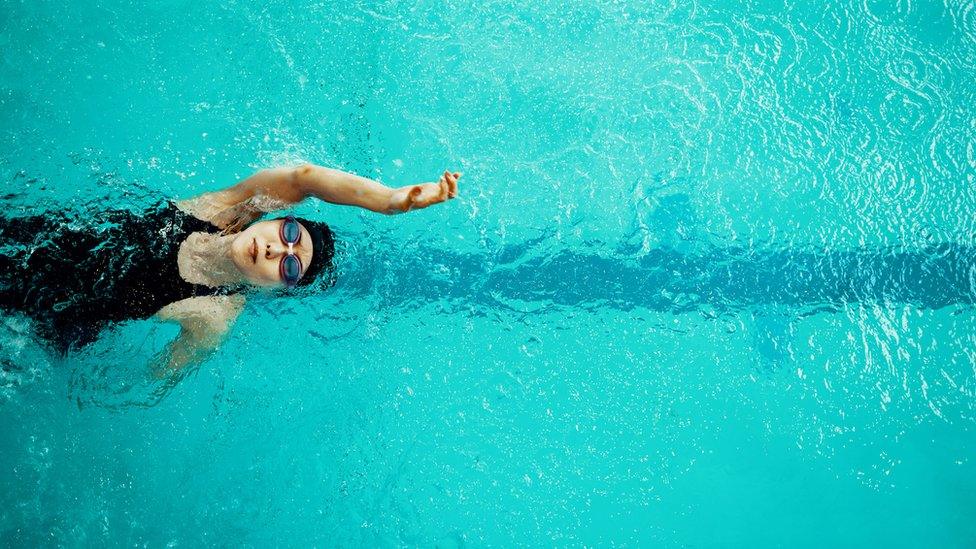
- Published30 June 2020
